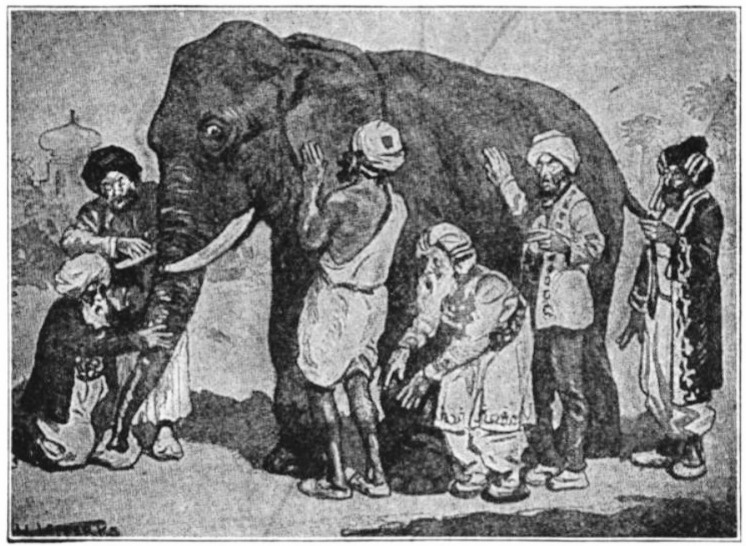Learning to speak is hard work.
As we used to say in the old days, there are a few housekeeping notes at the top of this post.
Now that we’re establishing a bit of a rhythm, posts are going to be longer and more in depth.
I’ll still try for two or three posts a week.
Posts are also going to be a bit more serious in tone and contain fewer silly jokes.
Since this is still a hobby for me and a way to keep accountable to my own practice, I’m not charging anything. I think that it’s important to be free.
To all those who thought my dad jokes were amazing and why you showed up at all, sorry to disappoint.
Now that that’s out of the way, let’s talk about what we’re doing. In the last post, we talked about method, which is a complete model of a problem and a route from beginning to end for solution, in this case, acquisition of knowledge.
How does this relate to what we all want to do, which is to play jazz music? And even if we have the the route in front of us, how do we walk it?
Hard Work
Let’s answer the last question, first, because it’s the first filtration point. If you don’t like the answer to this question, nothing else I write here will be of much use to you. Everything else assumes that you are willing to do this.
How do we walk the road? Through hard work. One of the formative and defining experiences and practices of my life has been the study of Ving Tsun Kung Fu. Not only did it open up new ideas to me, but it helped me sharpen ideas I’d already had and gave me a lot of words to talk about things that I’d already known and believed. Studying Ving Tsun helped make explicit and visible what was implicit and invisible.
One idea is that what we call Kung Fu is not a party trick, it’s not a gimmick to impress people and it’s certainly not the absence of work. Kung Fu is a term used to mean, “knowledge acquired through hard work.” Everyone can have Kung Fu. A chef can have Kung Fu. A computer programmer can have Kung Fu. A watchmaker can have Kung Fu. A jazz guitarist can have Kung Fu. Let’s behave this way.
So, this is knowledge earned through hard work. Hard work doesn’t mean it’s not fun. If you’ve ever tried to get good at doing something for sport, like, say, playing soccer or running track, you’ll know exactly what I mean when I say that hard work is often quite a bit of fun. And there are many ways to do hard work. You can come in with full focus, really pushing yourself to the limits, or you can come in with a more general, atmospheric awareness and go through the workout to see what comes to you when you are not actively seeking it. You can also take a lighter day. Enjoyment takes a lot of forms, there are as many ways to find joy as there are to be in the world.
One way that I like to think about Kung Fu is that it’s like a savings account of thinking. You do some work while you can to earn some knowledge and then bank it, wiring your brain so that when you need it, knowledge of what to do is right there, and it happens without you having to take the time to think about it. This, by the way, is what martial artists mean when we say things like, “Feel, don’t think.” It doesn’t mean something idiotic like, “Your emotions are hella truer than your brain, lol.”, but that you must train your total awareness and perception so that it is faster than your conscious mind and your body reacts without you having to direct it.
This is a very powerful idea. Imagine how hard it would be if you had to consciously think about every muscle and movement while you were running, as well as being aware of every piece of feedback that your body was giving you. It would be overwhelming, and, often, it is, when you first start. Those first few days of workout can be terrible, not just because your body gets exhausted from the exertion, but because your brain gets overwhelmed. Over time, your total awareness learns to handle the information all at once, you learn how to feel when to alter your gait, change your pace, handle the incline and decline, when your body is just tired or in serious pain, etc. The capacity of your total awareness expands to handle it all and you don’t suffer as much, you are reacting faster than you are thinking, leaving your conscious mind to do something else, like meditate.
Is this is what we’re doing when we’re learning to play jazz, hard work in pursuit of a pre-trained, living total consciousness that can adapt to circumstances and transform them? I think that this is a perfect model for what we are doing. In the same way that every martial artist has a fingerprint, every jazz musician will have a fingerprint, which we can call his style or his voice.
Method
Our goal is to transform our consciousness, and the method is how we do it. The method is the model of the problem, it’s the definitions and prescriptions. The method will tell us what we are going to do, why’re going to do it, how we’re going to do it and in what proportions we’re going to do it.
Now, here’s what’s going to be crazy. Learning to play jazz guitar is not exactly like learning a martial art, but it’s more like it than anything else. If you’ll notice, the title of this newsletter is not, “Learning Jazz From The Master”, but “Learning Jazz From The Masters.” It’s because jazz is bigger than any one person’s conception of it. Ever heard the story of the six blind men and the elephant?

Nobody I would describe as a master of jazz is as closed minded as one of the blind men in the story. Each, however, would disagree on method. And, so, we are going to be compositing our own method by listening to a few masters at once.
I’ve mentioned Jody Fisher. Add to that Ted Greene and Jerry Coker. There will probably be more. Those are big guys. Then there are lessons from my friends.
Style
All of this is in service of developing our own voice, our way of doing things, our own style. In linguistics, the way a specific person speaks is called an idiolect, the rules and patterns that make someone’s speech his own. Learning to play jazz is in large part about developing our own idiolect. In the same way that learning how to speak comes from listening to other people speak, reading the writing of others, yes, consumption, it is also developed and acquired through speaking and writing, both privately and with others. You just have to do it and keep doing it. This is the hard work I mentioned earlier. Doing it over and over again in both controlled and uncontrolled contexts will make it come alive for you.
Developing a style is in many ways about knowing one’s self well enough to make decisions between different goods. Do we choose to use the word “blue” or “cerulean”? Do we make something one sentence with two independent clauses or two sentences with one clause, each? Do we harmonise a note with a Major 7 Chord or with a Major Ninth chord? Do we play melodies with double stop octaves or do we play them faster, single stopped?
All of these are good things, and the choices we make reflect our own understanding of jazz.
Conclusion
We’ll be applying hard work to a method to develop our voice, with our method consisting of learning from several masters and developing our own opinions.
Next up, we’ll be talking about structuring a practice and a schedule.
